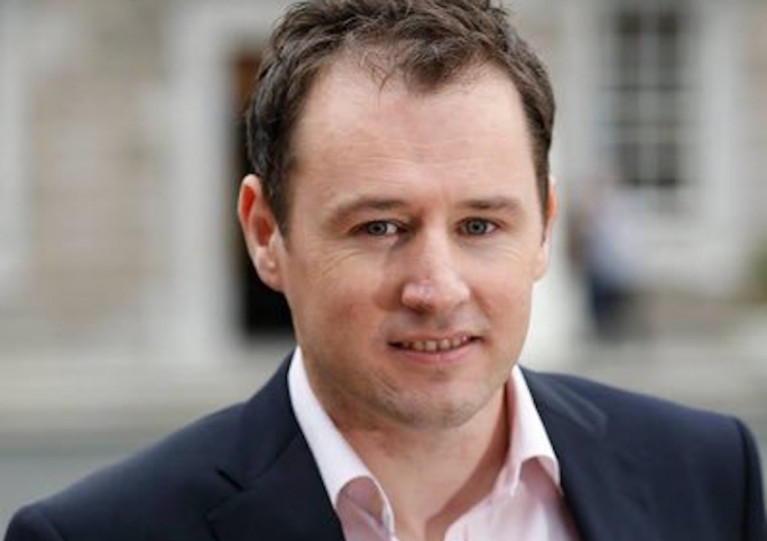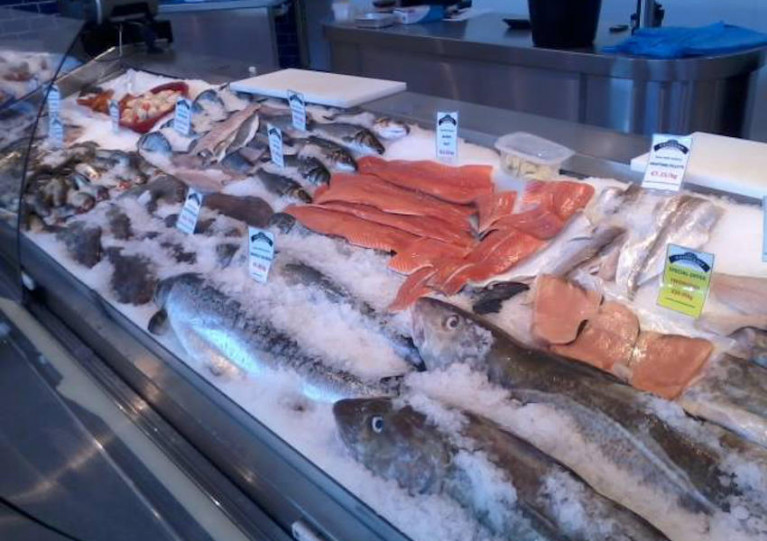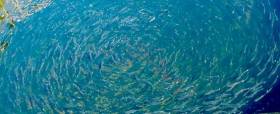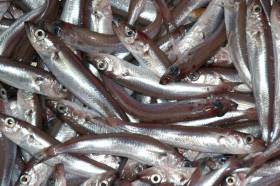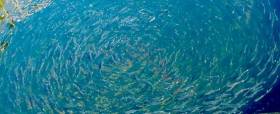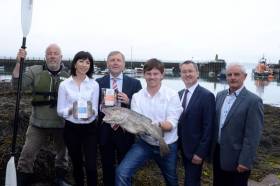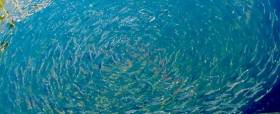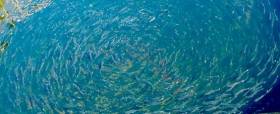Displaying items by tag: EMFF
Local coastal community groups and micro enterprises will benefit among 62 grants worth more than €900,000 awarded by Fisheries Local Action Groups (FLAGs) under Ireland’s European Maritime and Fisheries Fund Programme (EMFF).
Announcing the grant awards totalling €915,295, Marine Minister Charlie McConalogue hailed the success of the FLAG scheme and said: “This is testament not just to the demand for such local development funding in our coastal communities but very much to the hard work of the local volunteers, many drawn from our seafood and wider marine sectors, who make up the boards of each of our seven FLAGs.”
The minister added: “I believe that the FLAG initiative has significant additional potential in the years ahead to further drive start-ups and the development of seafood and marine businesses in our coastal communities and can be a key element of our strategy in mitigating the impacts of Brexit on our coastal communities.”
Among the recipients in this final allocation are a festival to celebrate Bantry Bay botanist Ellen Hutchins and a feasibility study for renewable energy generation on Achill Island.
The FLAG scheme is now closed, having expended its full allocation, and the minister’s department says a process will be initiated as part of the preparation of the new Seafood Development Programme 2021-27 to appoint FLAGs for the next programme period from 2022.
| FLAG | Projects | Total Investment | Grant Awards |
| West | 4 | €82,704 | €42,158 |
| North West | 16 | €568,752 | €272,959 |
| North | 10 | €618,558 | €306,347 |
| North East | 3 | €56,534 | €45,227 |
| South East | 4 | €49,265 | €38,236 |
| South West | 12 | €247,334 | €107,842 |
| South | 13 | €193,729 | €102,523 |
| TOTAL | 62 | €1,816,879 | €915,295 |
Details of the individual grant awards are set out below (applicant; project title; suppprt rate; total investment; grant aid):
FLAG West
- Séamus O'Flatharta; Inis Oírr Glamping and Campsite; 40%; €17,460; €6,984
- Oranmore Castle; Oranmore Castle Cultural Centre; 40%; €42,553; €17,021
- Cuan Beo CLG Cuan Beo; Implementing a holistic approach to sustainability in Galway Bay 2020; 80%; €16,191; €12,953
- Spiddal Craft & Design Centre; Online marketing campaign; 80%; €6,500; €5,200
FLAG North West
- Ballyglass Crew; Ballyglass Crew Yachtmaster; 50%; €5,300; €2,650
- Eachtrai UISCE Teoranta T/A UISCE; Training application; 50%; €21,741; €10,870
- Sligo Rowing Club Co Ltd; Purchase of safety launch boat; 80%; €9,185; €7,348
- Bellacragher Boat Club; Printing of Claggan Ferry maps, drop-down banners, social media promotion, signs and provision of two RIB shore trailers; 60%; €15,539; €9,323
- Todhchaí Phobail Acla; To assess the feasibility of Achill Island becoming a community owned electricity and hydrogen producer through wind power; 80%; €24,280; €19,424
- Ballycroy Community Council Ltd; Ballycroy Greenway Desktop feasibility with potential design works; 80%; €15,000; €12,000
- Mayo County Council; Feasibility study on the construction of a slipway on Clare Island; 60%; €25,000; €15,000
- Mayo County Council; Westport Lido (outdoor swimming pool - tidal); 50%; €24,944; €12,500
- The Lost Valley; Support coastal heritage and tourism by improvements to access route; 40%; €99,518; €39,807
- Rosses Point Development Association CLG & Sligo County Council; Feasibility Study for Sligo Community Boat Park; 25%; €193,860; €48,465
- Belderrig Dev Committee Ltd; Restoration of road to carpark at Belderrig Harbour; 50%; €41,841; €20,920
- Tullaghan Development Association; Developing marine tourism for Co Leitrim; 80%; €1,861; €1,489
- St Colman's Care Centre CLG; St Colman's Care Centre - upgrade existing facilities and equipment; 80%; €56,515; €45,212
- River Moy Search and Rescue Ballina CLG; Water conservation in the Moy Catchment area; 80%; €6,096; €4,877
- Leitrim County Council; Feasibility study - Exploring sea access at Leitrim consultation scoping document - Wild Atlantic Way; 100%; €3,075; €3,075
- Neart Acla CTR; Achill Traditional Currach Project; 80%; €24,996; €19,996
FLAG North
- Iontaobhas Amharclann Ghaoth Dobhair; Rochtain do chathaoireacha rothaí, ráillí láimhe agus balla carrchlóis; 80%; €44,000; €35,200
- Glenties Community Playgroup Limited; To develop a creative and imaginative outdoor environment which will be designed to a nautical pirate theme; 80%; €39,500; €31,600
- Ardara Artists Resource Centre; Renovate existing building in Ardara to enable it to be used by the community; 80%; €48,750; €39,000
- St Catherine’s Vocational School; Learning in area of cultural, arts, marine; 80%; €49,455; €39,564
- Donegal County Council; Provision of scenic viewing points and improved tourism access at Melmore, Downings, Donegal; 60%; €52,300, €31,380.00
- 18th Donegal Moville Port Sea Scouts; RYA Level 1 & 2 Power Boat, RYA Foundation Safety Rescue Training, RYA Sail Training; 51% €4,800; €2,448
- Cara Na nOilean Teo; Modernisation of ferry Coll; 32%; €96,087; €30,747.84
- Mullinasole Bay Water Sports Club; Mullinasole Bay Access Regeneration Phase 1; 51%; €63,400; €32,334
- KT Nets; Upgrade of facilities at KT Nets; 32%; €128,666; €41,173.12
- Teach Bhillie; Síneadh agus uasghradú le foirgneach Theach Bhillie; 25%; €91,600; €22,900
FLAG North East
- Baldoyle Forum CLG; Baldoyle Community Hall Development Feasibility Study; 80%; €10,000; €8,000
- Rush Tourism; Pirate sculpture for Rush; 80%; €11,604; €9,283
- Skerries Rowing Club; Design team fees for Skerries Rowing Club boathouse; 80%; €34,930; €27,944
FLAG South East
- Ladies Cove Community Coastal Project; Improvement works to Ladies Cove; 80%; €30,687; €24,549
- Bannow Historical Society; Training in maritime heritage preservation and celebration; 80%; €12,728; €10,182
- Passage East Hurling Club; Beat the Ferryman Swim; 60%; €1,670; €1,000
- Hook Rural Tourism Ltd; Hike to the Hook 2020 and social media development; 60%; €4,180; €2,504
FLAG South West
- Valentia Island Way; Cookery school and demonstration kitchen; 37%; €21,657; €7,997
- Irish Coastal Rowing Federation; All-Ireland Coastal Rowing Championships 2021; 80%; €20,548; €16,438
- Dingle Sea Safari Limited; Passenger vessel; 50%; €50,460; €25,000
- Patrick Browne; Supply of local markets with fish from boat to table directly from MFV Ocean Dawn; 50%; €5,340; €2,670
- Badoiri an Bhlascaoid Teoranta; Self-drive hire boats; 25%; €44,142; €11,035
- Kerry Aqua Terra Limited; Boat, equipment and crew protection from elements; 50%; €4,950; €2,475
- The Dingle Way Coastal Trail; Cultural marine information boards and seating areas; 80%; €12,196; €9,757
- Valentia Rowing Club; One design rowing racing boat and oars, traditional four-oar boat trailer and launching trolley; 77%; €6,500; €5,000
- Irish Elasmobranch Group; Underwater survey drone; 80%; €8,480; €6,784
- Blascaoid Mór Teoranta; Equipment boat package; 25%; €23,163; €5,790
- Dingle Harbour Boat Hire; Purchase of equipment and boats; 28%; €47,894; €13,293
- Éigse na Brídeoige; Éigse Online: a series of performances, talks, seminars and interviews on the song tradition of Kerry; 80%; €2,000; €1,600
FLAG South
- Cumann Na Daoine; Building community resilience and understanding of climate change as it will impact very directly on coastal communities; 80%; €6,751; €5,401
- Ellen Hutchins Festival; She Gathered Seaweed on the Seashore: Celebrating the Botany of Bantry Bay; 62%; €3,250; €2,000
- Ard na Gaoithe; Support to sustain and diversify Ard na Gaoithe B&B and Cape Clear Foodie Stall; 40%; €2,562; €1,024
- Roaring Water Marine; Equipment to expand business; 50%; €1,719; €859
- Bantry Bay Boat Hire Limited; New kayaks, equipment and boat engine; 50%; €9,325; €4,662
- Roaring Water Sea Vegetable Company Limited; Processing unit; 50%; €17,490; €8,745
- Schull Regatta; Schull Regatta 2021; 40%; €4,821; €2,000
- Galley Flash Rowing Club; Maximising equipment resources 2021 Sculling Oars; 80%; €1,060; €848
- Skibbereen Rowing Club; Safety launch; 80%; €8,275; €6,620
- ZT Fish Company Limited; Mobile retail unit; 50%; €23,495; €11,747
- Travara Shellfish Limited; Infrastructure and equipment; 50%; €23,827; €11,913
- Myross Rowing Club Company Limited; Club fleet upgrade; 65%; €7,750; €5,000
- Allihies Seafood Limited; Developing a sustainable micro-algae cultivation and processing facility; 50%; €83,401; €41,700
Nine Seafood Processing Companies Get Investment Top-Up from EMFF Grants
Marine Minister Charlie McConalogue has announced €4.9 million in new investment by nine seafood processing companies, with his department’s European Maritime and Fisheries Fund (EMFF) programme providing over €1 million in grants.
Announcing the grants, Minister McConalogue said: “I am very pleased to support these nine seafood enterprises to further grow their business.
“These are particularly challenging times with both Covid and Brexit impacting on markets and the ongoing capital investment by our seafood sector is evidence of its resilience and its optimism for future growth prospects.”
The minister added: “My department’s European Maritime and Fisheries Fund programme has provided in excess of €230 million over the past seven years to support the sustainable growth of our seafood sector.
“A new Seafood Development Programme for the 2021-27 period is presently being drafted and I expect it to commence later this year.”
The €1,011,184 in grants are co-funded by the Government of Ireland and the European Union and are subject to terms and conditions.
Under the Seafood Processing Capital Investment Scheme, Good Fish Processing Ltd in Cork receives €42,228 towards information systems, for a total investment of €140,759.
Also in Cork, the Castletownbere Fishermens Co-operative Society has been granted €257,747 (total investment €859,157) for a spiral freezer, deheading machine and associated works.
And Senahoek Trading Ltd gets €448,364 (total investment €2,989,091) towards construction of a factory including cold store.
Howth, Co Dublin fishmongers Nicky’s Plaice Ltd will get €9,900 (total investment €41,000) towards an ice machine and pin boner, while Kerry Fish (Ire) Unlimited Company receives €185,775 (total investment €723,746) for reconfiguration of its ‘high care’ department and the purchase of an automated smoked salmon slicing line.
Elsewhere, Dundalk Bay Seafoods Ltd in Co Louth receives €19,410 (total €64,700) for investment in an efficient and environmentally friendly retail production line.
Under the Seafood Innovation & Business Planning Scheme, Goatsbridge Fish Processors Ltd in Kilkenny will receive €19,500 (total investment €39,000) for strategic advisory services enhancing financial planning and company structure in Ireland and the UK, while Sofrimar Unlimited Company in Wexford gets €28,260 (total investment €56,520) for trials and rental of equipment for converting waste products to powder for use in horticulture.
Marine Marine Charlie McConalogue has announced €4.8 million in new investment by eight seafood processing companies, with his department’s European Maritime and Fisheries Fund Programme (EMFF) providing more than €1.4 million in grants.
The grants amounting to €1,408,949 are funded half-and-half by the Government and European Union and are subject to terms and conditions.
Announcing the grants, Minister McConalogue said 2020 “has been a difficult year for our seafood sector, as it has for our economy as a whole.
“So, it is heartening to see many of our leading seafood processors continue to invest to further grow their businesses. I am delighted to support these eight seafood processors in building for the future.
“Although the processing sector continues to face challenges, with the pandemic continuing to impact on world markets and uncertainties and risks around the ongoing trade negotiations with the UK, there are also many opportunities to continue to develop and prosper, as companies adapt and innovate to unlock the market opportunities that are available for quality Irish seafood products.”
The minister added that the EMFF remains “open for business” and continues to provide grants for a wide range of investments in Ireland’s seafood sector “including capital investment, innovation, business planning and marketing”.
The latest funding boost for the sector follows €3.5 million invested in six seafood processing companies in June, and a €3.4 million investment across 15 aquaculture enterprises in July.
Among the eight beneficiaries in this latest round of investment, Co Cork-based Good Fish Processing and Keohane Seafood also received grants in the June funding announcement.
Grant approvals - Seafood Processing Capital Investment Scheme 2020
|
Beneficiary |
Location |
Project |
Total Investment |
EMFF Grant |
|
Bio-marine Ingredients Ireland Ltd. |
Monaghan |
Automated Powder Bagging System and associated modifications. |
€153,691 |
€46,107 |
|
Rockabill Seafood Ltd. |
Dublin |
Air purifier and crab labelling system |
€153,281 |
€43,918 |
|
Shellfish De La Mer |
Cork |
Airflow, cooler and conveyor systems, and steam cooker |
€442,590 |
€130,723 |
|
Atlantis Seafood Wexford Ltd.
|
Wexford |
White fish filleting line & Skin Packer |
€715,685 |
€214,706 |
|
Kish Fish Company Ltd.
|
Dublin |
Blast chill, packing room, vacuum packing machine |
€30,825 |
€9,248 |
|
Good Fish Processing (Carrigaline) Ltd.
|
Cork |
White fish filleting line |
€1,511,444 |
€449,979 |
|
Keohane Seafoods Unlimited
|
Cork |
Salmon processing equipment and factory reconfiguration |
€1,712,709 |
€463,899 |
|
Breizon Ltd. |
Galway |
Reduction in energy costs through solar PV installation |
€93,799 |
€14,070 |
|
Total: |
|
€4,814,024 |
€1,372,649 |
Grant approvals – Seafood Innovation and Business Planning Scheme
|
Beneficiary |
County |
Project |
Total Investment |
EMFF Grant |
|
Keohane Seafoods Unlimited
|
Cork |
Management and business planning consultancy |
€72,600 |
€36,300 |
|
Total: |
|
|
€72,600 |
€36,300 |
More Than €1.5 Million In Grants For 20 Seafood Companies
#Seafood - Marine Minister Michael Creed has announced more than €1.5 million in grants to 20 seafood enterprises in 10 different counties around Ireland.
The grant awards — under the European Maritime and Fisheries Fund (EMFF) Operational Programme for the seafood sector ad totalling €1,532,230 — will support total investment of €4,018,852 in the fisheries, aquaculture and seafood processing sectors.
These grants are co-funded by Government of Ireland and the European Union and subject to terms and conditions.
“It is very encouraging to see a continued increase in investment in aquaculture and these investments will positively contribute to our sustainable growth targets for the sector,” Minister Creed said on launching the latest grants. “ It is also reassuring to see our fisheries cooperatives continuing to invest to position themselves to handle unwanted catches under the new CFP discards ban.
“Investing in our seafood sector increases jobs in rural and coastal communities – a priority for this Government. Furthermore the development of the innovation and value added capacity of the sector is key to mitigating the potential impacts of Brexit.”
The news comes just days after Minister Creed announced €1.5 million in funding for more than 100 coastal-based projects under the EMFF, as previously reported on Afloat.ie.
#Fishing - Marine Minister Michael Creed has announced details of grants worth €1.5 million under Ireland’s European Maritime and Fisheries Fund (EMFF) to more than 100 coastal-based projects.
The grants support a total investment of €2.4 million in these additional 106 projects within Ireland’s seven Fisheries Local Action Groups (FLAGs).
“The FLAGs initiative is proving a fantastic success and the grants awarded to the 247 local coastal projects to date in 2018 will be a hugely important boost to these coastal communities,” Minister Creed said.
Successful projects included investments in micro seafood enterprises, marine tourism and marine leisure projects, heritage projects, small harbour facilities, and environmental and training projects.
The grants are co-funded by the Government and the European Union under the EMFF Operational Programme for the seafood sector.
Details on the FLAG scheme and on how to apply can be found on the Bord Iascaigh Mhara website.
#Seafood - Marine Minister Michael Creed has called for European Maritime & Fisheries Funding (EMFF) for small to medium enterprises in aquaculture and seafood processing to be continued post-2020.
Addressing the Council of Agriculture and Fisheries Ministers meeting in Luxembourg yesterday (Monday 18 June), the minister said: “Ireland expects to fully spend its 2014-2020 allocation and we foresee increasing investment opportunities and demands for the 2021-2027 period.
“I would like to highlight one particular area of initial concern that we have identified, namely the apparent proposal to restrict EMFF aid for capital investment in aquaculture and seafood processing to financial instruments only. Currently such a restriction applies to large scale operators only.
“The majority of our operators are small or medium enterprises. Depriving them of grant aid would have a very negative impact on our policy objectives to grow scale and add value in our processing and aquaculture sectors.
Minister Creed added: “While we are in favour of continued and increased use of financial instruments, we must continue to have recourse to grant aid where these are most appropriate.”
#Fishing - Marine Minister visited Ballycotton Harbour in Co Cork yesterday (Thursday 8 June) to announce a range of successful projects that will deliver a total investment of €3.6 million covering 153 projects under the Fisheries Local Area Action Group (FLAG) Strategy for Ireland’s seven coastal regions.
The FLAG Scheme is co-funded by the Exchequer and the EU under Ireland’s European Maritime and Fisheries Fund (EMFF) Operational Programme 2014-20. Over the duration of the EMFF programme, the FLAG Scheme will deliver €12 million in funding to Ireland’s coastal communities.
Speaking in Ballycotton at the event to announce the FLAG grant offers, Minister Creed said: “It is testament to the hard work and dedication of our volunteer FLAG Board members in each of our seven FLAG regions that this year’s programme has delivered so many projects that will enhance the economic and social wellbeing of our coastal communities.”
Over 200 project applications were received under the FLAG Scheme this year, with the final 153 selected by the FLAG Boards for their contribution to community rejuvenation, enterprise, innovation, job creation and skills enhancement across the fishing, aquaculture and maritime industries.
Bord Iascaigh Mhara (BIM) worked closely with the FLAG Boards around the coast as they developed and implemented their own local strategies, added its chief executive Jim O’Toole.
“Seafood and its wider role in the community is at the core of this innovative programme and it is the diverse nature of the projects funded under the scheme that illustrates the true value of the seafood industry to our coastal communities and also the potential for further growth in the years ahead,” he said
Finian O’Sullivan, board chair of FLAG South, shared his delight that the Cork region “has approved funding for 17 projects ranging from marine tourism, seafood development and production, community-led initiatives, and supports for small-scale coastal fishermen.
“Of the 17 projects approved today, €250,000 in grant aid has been awarded with an overall value to the economy of the South FLAG area of over €500,000.”
Last month, Minister Creed announced the award of more than €1.3 million in grants to 19 seafood enterprises in nine different counties under the EMFF Operational Programme of the seafood sector.
#Seafood - Marine Minister Michael Creed has announced the award of a further €1,324,040 in grants to 19 seafood enterprises in nine different counties under the European Maritime and Fisheries Fund (EMFF) Operational Programme for the seafood sector.
The grant awards will support total investment of €3.5 million in 2017. The grants are co-funded by the Exchequer and EU and subject to terms and conditions.
Minister Creed said: “In March, I announced EMFF grant awards of €1.8 million to seafood enterprises. I am delighted to now announce a further €1.3 million in EMFF grant awards to 19 seafood enterprises.
“It is especially welcome to see that aquaculture enterprises are dominating this round of grant awards. Grants of almost €1 million are being offered to 10 aquaculture enterprises. Nine of these will further develop our oyster production, while the other concerns mussels.
Taken together with the earlier awards in March, this means grant offers of nearly €2 million have already been made this year to 18 aquaculture enterprises and are supporting €5 million in aquaculture capital investments.
The minister added that the EMFF Sustainable Aquaculture Scheme “remains opens for applications and I am optimistic that we will see yet more aquaculture projects coming forward as the year progresses.
“The Sustainable Aquaculture Scheme supports capital investments in licensed aquaculture sites to grow our production and mitigate environmental impact. Our National Strategic Plan for Sustainable Aquaculture Development is aiming to sustainably grow our production by 45,000 tonnes and these 2017 projects are welcome contributions towards that target.”
Grant approvals - Sustainable Aquaculture Scheme
|
Beneficiary |
County |
Total Investment |
Grant Approved |
|
Sofi Shellfish Ltd |
Mayo |
€68,815 |
€27,526* |
|
Caragh Clams Ltd |
Kerry |
€27,354 |
€10,941 |
|
Donegal Oysters Ltd |
Donegal |
€610,880 |
€244,352 |
|
Donegal Ocean Deep Oysters Ltd |
Donegal |
€809,553 |
€323,821 |
|
Iasc Sliogagh Dún Garbhain Teoranta |
Waterford |
€342,176 |
€186,870 |
|
Racoo Shellfish |
Donegal |
€119,700 |
€47,880 |
|
Coney Island Shellfish Ltd |
Sligo |
€93,300 |
€37,320 |
|
Turkhead Enterprises Ltd |
Cork |
€51,317 |
€20,527 |
|
Eoin Carter |
Sligo |
€84,052 |
€42,026 |
|
Ostre’an Teoranta |
Donegal |
€62,837 |
€25,135* |
|
TOTAL |
|
€2,269,984 |
€966,398 |
* Subject to confirmation of SME status
Grant approvals - Seafood Processing Capital Investment Scheme
|
Beneficiary |
County |
Total Investment |
Grant Approved |
|
Good Fish Processing Ltd |
Cork |
€505,000 |
€113,250 |
|
Keohane Seafoods Ltd |
Cork |
€211,948 |
€57,819 |
|
Carr & Sons Seafood Ltd |
Mayo |
€235,076 |
€64,446* |
|
TOTAL |
|
€952,024 |
€235,515 |
* Subject to confirmation of SME status
Grant approvals - Seafood Scaling & New Market Development Scheme
|
Beneficiary |
County |
Total Investment |
Grant Approved |
|
Jade Ireland Seafood Ltd |
Dublin, Donegal, Cork |
€120,000 |
€60,000 |
|
TOTAL |
|
€120,000 |
€60,000 |
Grant approvals - Seafood Innovation & Business Planning Scheme
|
Beneficiary |
County |
Total Investment |
Grant Approved |
|
Ocean Run Ltd |
Cork |
€6,650 |
€3,325 |
|
Biomarine Ingredients Ireland Ltd |
Donegal |
€40,000 |
€20,000 |
|
Shellfish De La Mer Ltd |
Cork |
€39,604 |
€19,802 |
|
Rene Cusack Ltd |
Limerick |
€10,000 |
€5,000 |
|
Goatsbridge Fish Processors Ltd |
Kilkenny |
€28,000 |
€14,000 |
|
TOTAL |
|
€124,254 |
€62,127 |
New Marine Minister Announces €4.3M EMFF Grants To Seafood Processing & Aquaculture Sectors
#Seafood - New Marine Minister Michael Creed yesterday (Friday 27 May) announced the award of €4.3 million in grants to 51 seafood enterprises under five schemes launched earlier this year under the European Maritime and Fisheries Fund (EMFF) Operational Programme for the seafood sector.
The grants are co-funded by the Exchequer and EMFF and subject to terms and conditions.
“The EMFF Seafood Development Operational Programme was only adopted in December 2015 and I am delighted that it has so quickly seen these significant investments in our seafood sector provided with the financial supports that will ensure that these critical investments can be implemented," said the minister.
"Collectively, these investments will deliver jobs to coastal communities, develop new value added seafood products, develop new markets and further sales for our seafood products, and develop knowledge and new processes in aquaculture production, disease management and animal husbandry.
"These investments will assist seafood enterprises to contribute to the ambitious growth targets we have set for our processing and aquaculture sectors. I expect to announce further grant offers under these schemes in the coming months."
The grant offers are made under five EMFF Schemes. For the processing sector, €3.4 million was awarded to 27 enterprises under the Seafood Capital Investment Scheme towards total investment of €19.4 million. These investments are projected to create 316 jobs by 2019 and additional sales of €77 million by 2019.
In addition, €157,000 was awarded to four enterprises under the Seafood Scaling and New Market Development Scheme towards total investment of €335,000 and €164,000 was awarded to eight enterprises under the Seafood Innovation and Business Planning Scheme towards total investment of €328,000.
For the aquaculture sector, €199,000 was awarded to four enterprises under the Knowledge Gateway Scheme towards total investment of €305,000, while €382,000 was awarded to eight enterprises under the Sustainable Aquaculture Scheme towards total investment of in excess of €1 million.
Further details of the schemes concerned are available at the BIM website HERE.


























